
Latest Coronavirus Disease COVID 19 News and Research
Feeling anxious and depressed? You’re right at home in California.
It's official, California: COVID-19 has left us sick with worry and increasingly despondent. And our youngest adults — ages 18 to 29 — are feeling it worst.
Many people of color, immigrants among 1,080 US health workers lost to COVID
More than 1,000 front-line health care workers reportedly have died of COVID-19, according to Lost on the Frontline, an ongoing investigation by The Guardian and KHN to track and memorialize every U.S. health care worker who dies from the coronavirus.
Prognosis for rural hospitals worsens with pandemic
Jerome Antone said he is one of the lucky ones. After becoming ill with COVID-19, Antone was hospitalized only 65 miles away from his small Alabama town. He is the mayor of Georgiana — population 1,700.
LA hospital seeks vaccine trial participants among its own high-risk patients
The patients at Dr. Eric Daar's hospital are at high risk for serious illness from COVID-19, and he's determined to make sure they're part of the effort to fight the disease.
Estradiol appears to help in female SARS-CoV-2 infection
A new study published on the preprint server medRxiv in August 2020 shows that the risk of infection is high for pre-menopausal women but the risk of death is much higher for men in the same age group and throws light on the protective nature of estradiol therapy in post-menopausal women.
Inhaled steroid ciclesonide suppresses SARS-CoV-2 replication in vitro
A new paper by researchers at Japan’s National Institute of Infectious Diseases and published on the preprint server bioRxiv in August 2020 reports the in vitro suppression of coronavirus (CoV) replication by an inhaled corticosteroid (ICS) ciclesonide.
Identifying COVID-19 host genes using symptom-based predictions
A recent study published on the preprint server bioRxiv* in August 2020 shows that symptom-based prediction of the diagnosis can help identify host genes that are responsible for part of this variability.
Study: COVID-19 vaccine should be at least 80% effective to prevent ongoing pandemic
The American Journal of Preventive Medicine, published by Elsevier, is committed to publishing the most robust, evidence-based research and commentary on COVID-19 as they unfold to keep readers up to date and aware of issues relevant to community and individual health during this continually evolving global outbreak.
Synthetic gene fragments from SARS-CoV-2 can help produce accurate diagnostic tests
Researchers at the National Institute of Standards and Technology (NIST) have produced synthetic gene fragments from SARS-CoV-2, the virus that causes COVID-19. This material, which is non-infectious and safe to handle, can help manufacturers produce more accurate and reliable diagnostic tests for the disease.
UC Berkeley demographers calculate the consequences of U.S. lives lost to COVID-19
With over 170,000 COVID-19 deaths to date, and 1,000 more each day, America's life expectancy may appear to be plummeting.
Monoclonal antibodies may be a better choice than convalescent plasma for treating COVID-19
A team of researchers from the Netherlands demonstrated that prophylactic treatment with a high dose of human convalescent plasma or by using concentrated monoclonal antibodies could protect against disease following severe acute respiratory syndrome coronavirus 2 (SARS-CoV-2) infection in an animal model. However, no protective effect was observed with a ten-fold lower dose of convalescent plasma. The results are currently available on the bioRxiv* preprint server.
Perspective: COVID-19 human milk research should be conducted without disrupting lactation
Scientists have launched a number of human milk and lactation studies to determine if SARS-CoV-2 can be transmitted to infants through human milk.
Humidity (not temperature) influences SARS‐CoV‐2 transmission
A recent study conducted in New South Wales, Australia, demonstrates that there is an inverse relationship between relative humidity and transmission of severe acute respiratory syndrome coronavirus 2 (SARS-CoV-2). The study is published in the journal Transboundary and Emerging Diseases.
Universities collaborate to develop COVID-19 virus-trapping materials
Researchers around the world are racing to find treatments to tackle the COVID-19 pandemic that has caused more than 16 million human infections globally.
Assessing the risk of COVID-19 outbreaks once schools reopen
A study conducted by researchers at the London School Of Hygiene and Tropical Medicine, University of Edinburgh, and Leiden University, suggests that only reopening schools to specific age groups would reduce the risk of severe acute respiratory syndrome coronavirus 2 (SARS-CoV-2) being transmitted between schools and subsequently households.
Industry partnership leads to rapid launch of alcohol-free sanitizers to combat Covid-19
A partnership between Aston University scientists and industry partners has led to the rapid launch of a range of alcohol-free sanitiser products to combat Covid-19.
Hydroxychloroquine treatment for COVID-19 patients lowers in-hospital mortality rates
An Italian observational study contributes to the ongoing debate regarding the use of hydroxychloroquine in the current pandemic.
High SARS-CoV-2 antibody seroprevalence, low mortality at Austrian COVID-19 epicenter
Now, a new study reported on the preprint server medRxiv* in August 2020 describes a high seroprevalence in an Austrian ski resort, which is considered to be the source of the European outbreak.
Metabolic syndrome increases the odds of mortality for COVID-19 patients
Patients hospitalized with COVID-19 who had a combination of high blood pressure, obesity and diabetes were over three times more likely to die from the disease, according to a new Tulane University study.
Inconsistent implementation of COVID-19 control has dire consequences
Researchers in the United States have conducted a study highlighting the potential unintended consequences of implementing coronavirus disease 2019 (COVID-19) control policies in an inconsistent, patchy manner.


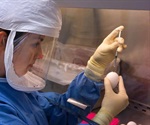

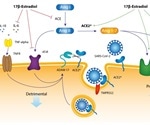
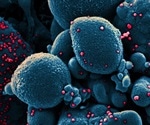
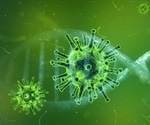
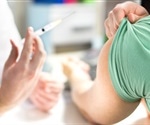
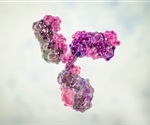
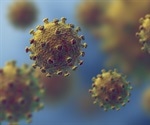
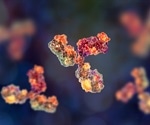

_548ff86137434d698099cf6ab8fee5f5-150x125.jpg)


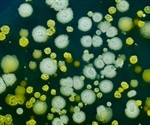


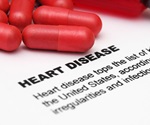

































No hay comentarios:
Publicar un comentario